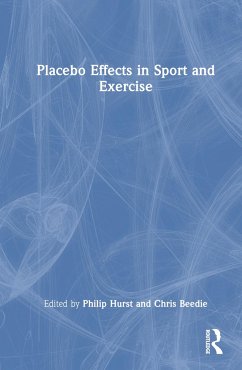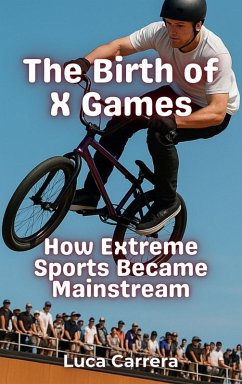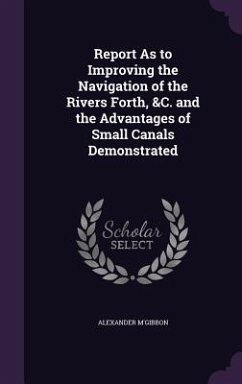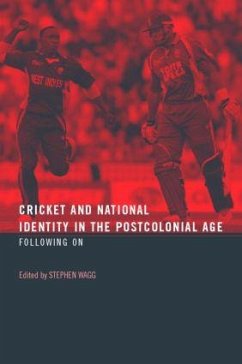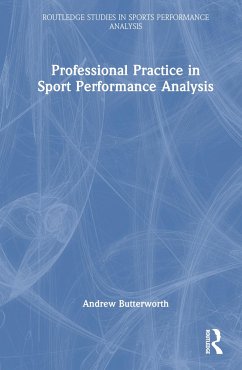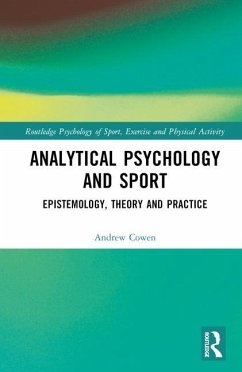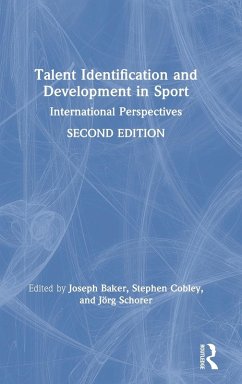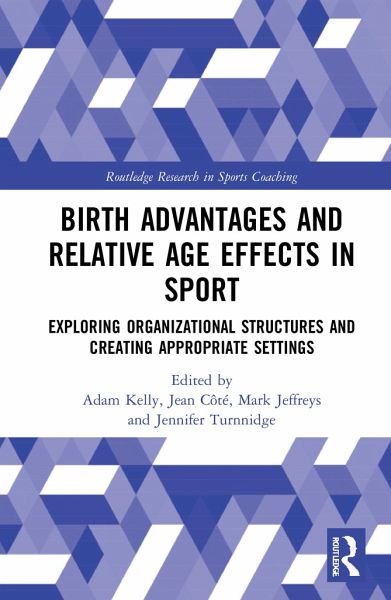
Birth Advantages and Relative Age Effects in Sport
Exploring Organizational Structures and Creating Appropriate Settings
Herausgeber: Kelly, Adam; Jeffreys, Mark; Côté, Jean
Versandkostenfrei!
Versandfertig in 1-2 Wochen
170,99 €
inkl. MwSt.
Weitere Ausgaben:

PAYBACK Punkte
85 °P sammeln!
Relative age effects (RAEs) refer to the participation, selection, and attainment inequalities in the immediate, short-term, and long-term in sports. Indeed, dozens of studies have identified RAEs across male and female sporting contexts. Despite its widespread prevalence, there is a paucity in the empirical research and practical application of strategies specifically designed to moderate RAEs. Thus, the purpose of this book is to situate RAEs in the context of youth sport structures, lay foundational knowledge concerning the mechanisms that underpin RAEs, and offer alternative group banding ...
Relative age effects (RAEs) refer to the participation, selection, and attainment inequalities in the immediate, short-term, and long-term in sports. Indeed, dozens of studies have identified RAEs across male and female sporting contexts. Despite its widespread prevalence, there is a paucity in the empirical research and practical application of strategies specifically designed to moderate RAEs. Thus, the purpose of this book is to situate RAEs in the context of youth sport structures, lay foundational knowledge concerning the mechanisms that underpin RAEs, and offer alternative group banding strategies aimed at moderating RAEs. In order to enhance our knowledge on birth advantages and RAEs to create more appropriate settings, key stakeholders, such as coaches, practitioners, administrators, policy makers, and researchers, are required to understand the possible influence of and interaction between birthplace, engagement in activities, ethnicity, genetic profile, parents, socioeconomic status, and relative age. Thus, in addition to RAEs and alternative group banding strategies, Birth Advantages and Relative Age Effects in Sport also examines the role of additional birth advantages and socio-environmental factors that young athletes may experience in organized youth sport. Drawing from both empirical research and practical examples, this book comprises three parts: (a) organizational structures, (b) group banding strategies, and (c) socio-environmental factors. Overall, this book broadens our understanding of the methodological, contextual, and practical considerations within organizational structures in sport to create more appropriate settings, and strive to make positive, impactful change to lived youth sport experiences. This book will be of vital reading to academics, researchers, and key stakeholders of sports coaching, athlete development, and youth sport, as well as other related disciplines.







